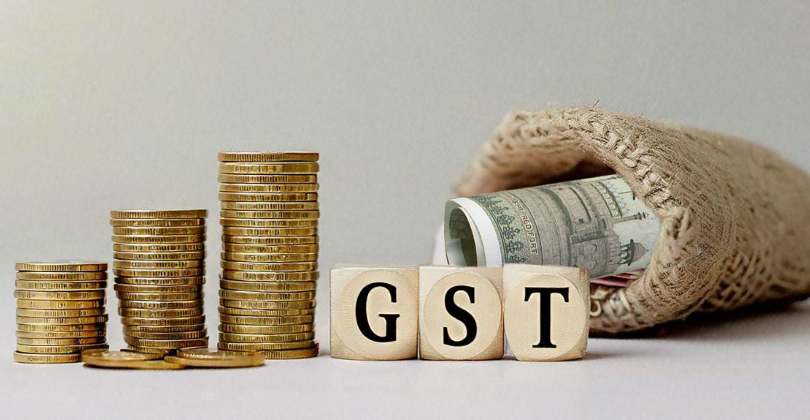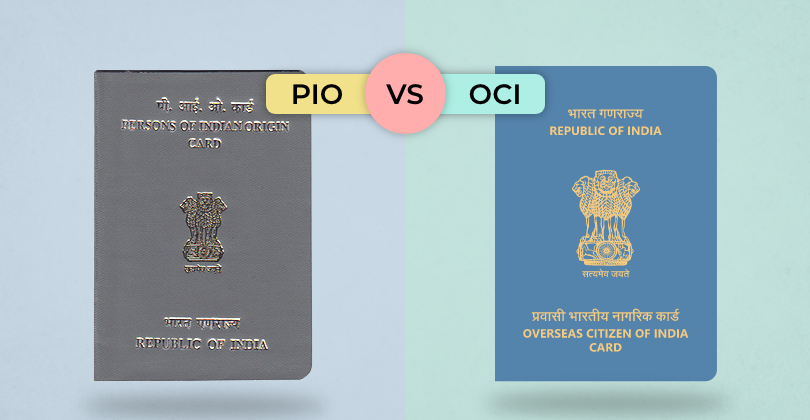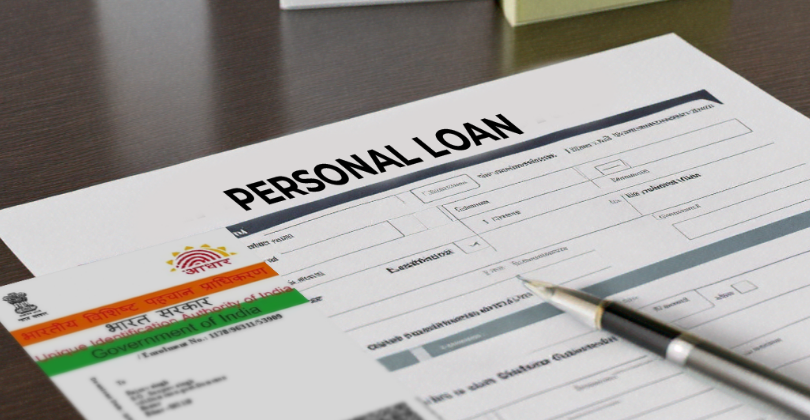Are you of Indian origin and living abroad? You've probably come across terms like PIO and OCI. These cards offer different benefits, but it can
Ever needed a little extra cash but weren't sure how to get it? An instant personal loan can be a helpful tool. But between interest rates and fees, one term you might encounter is Goods and Services Tax (GST). What exactly is it, and how does it affect your loan?
Is GST a foe driving up the cost of your loan, or is it a misunderstood friend providing some hidden benefit? All these questions make it important to clear up the confusion surrounding GST and personal loans.
Ready to get the facts straight and explore the world of online personal loans with confidence? Let's sort this out!
How Does GST on Personal Loan Work?
How Does GST on Personal Loan Work?
GST, or Goods and Services Tax, applies to various services associated with personal loans, making it important to understand where this tax is applicable and where it isn't. Below is a simplified explanation, including specific examples.
GST on Loan-Related Services
When you take out a personal loan, the lender provides several services for which GST is levied. This includes processing your application and managing the loan setup. Here are the main charges where GST at a rate of 18% applies:
-
Processing Fee: The lender charges a processing fee to cover the administrative costs involved in processing your loan application.
-
Other Charges: GST also applies to several other fees associated with personal loans, such as:
-
Bounce charges
-
Charges for outstation collections
-
Loan account statement charges
-
Charges for foreclosure
-
Part-prepayment charges
-
Exemptions from GST
It’s critical to note that GST does not apply to every aspect of your personal loan:
-
Loan Amount & Interest: The principal amount of the loan and the interest you pay on it are not subject to GST.
-
EMI Payments: The monthly repayments, which include both the principal and the interest components, are also exempt from GST.
Example
Consider a scenario where you apply for a personal loan and are charged a processing fee of INR 5,000. GST at 18% on this fee would be INR 900, making the total cost INR 5,900.
This breakdown helps clarify that while the core components of your loan (the amount borrowed and the interest) remain untaxed, various service-related charges do attract GST.
Impact of GST on Personal Loans and Lending Sector
The introduction of GST on personal loan processing fees has had a two-fold impact:
-
Slightly Higher Processing Fee
The main impact for borrowers is a slight increase in the processing fee due to the 18% GST. This adds a small additional cost upfront when taking out the loan. -
More Transparency
On the positive side, GST brings more transparency to loan processing costs. Borrowers can see exactly what they're paying, including the processing fee and GST. -
Simpler Tax System
For lenders, GST has simplified the tax system compared to the pre-GST era with its multiple indirect taxes. This can streamline their administrative processes. -
Improved Compliance and Record-Keeping
The uniformity of GST across different services and states has improved compliance with tax regulations. It also enhances record-keeping and reporting processes within the lending sector, as all transactions are now clearly defined under GST norms.
For Borrowers
For the Lending Sector
Impact of GST on Personal Loan Interest Rates
Interest rates play a crucial role when applying for a personal loan online. It is important to know that GST has minimal impact on interest rates. It has nothing to do with monthly instalments.
Interest is not considered a service in comparison to personal loan pre-payment and processing. It is an amount paid at a fixed or floating rate. Hence, GST does not apply to interest rates, thereby offering borrowers respite.
Advantages of GST on Personal Loans
While the impact of GST on personal loans might seem primarily like a cost increase, there are some advantages to consider:
-
Transparency in Loan Costs
One key benefit is increased transparency in loan processing costs. Before GST, various fees were involved, making it difficult to understand the true cost of the loan. Now, with GST applied to the processing fee, borrowers see a clear breakdown of what they're paying for. -
Fairer Lending Environment
GST promotes a fairer lending environment by ensuring all lenders follow standardised tax practices. This reduces the risk of hidden fees or unexpected charges, making the loan process more predictable for borrowers. -
Potential for Streamlined Processes
A simpler tax system under GST can potentially streamline administrative processes for lenders. This could lead to improved efficiency in the long run, benefiting both lenders and borrowers.
Minimising the Impact of GST on Processing Fees
While GST doesn't significantly impact the business loan interest rate, you can still minimise its effect on processing fees:
-
Shop for Lower Fees
Compare processing fees offered by different lenders. Opt for a loan with a lower processing fee, as GST is a percentage of that fee. The lower the processing fee, the lower the GST you'll pay. -
Compare Interest Rates
Remember, processing fees are just one factor. Look for lenders with competitive interest rates as well. A lower interest rate can save you more money in the long run than a slightly lower processing fee. -
Consider Pre-payment Charges
If you think you might repay the loan early, check pre-payment penalties. GST applies to these charges, too. Choosing a lender with lower or no pre-payment penalties can help you save on GST if you decide to pay off the loan early. -
Be an Informed Borrower
Compare loan options carefully, considering both processing fees and interest rates. By choosing the most cost-effective option, you can minimise the impact of GST on the loan.
Don't Let GST Hold You Back: Get the Loan You Need!
GST adds a small cost to personal loan processing fees. However, the benefits of transparency and a fairer lending environment shouldn't be ignored. With a personal loan calculator, you can effortlessly navigate the instant personal loan online process with confidence.
Ready to take the next step? Here at KreditBee, we understand that getting the personal loan you need should be simple and straightforward. Our user-friendly website and mobile application allow you to apply for a loan quickly. We ensure transparency so you know exactly what you're getting!
Frequently Asked Questions
No, GST is not applied to the loan amount itself. It only applies to specific charges associated with the loan, such as the processing fee and pre-payment charges (if applicable).
GST is currently charged at a rate of 18% on the processing fee. So, if your processing fee is Rs. 2,000, you'll pay an additional Rs. 360 (18% of 2,000) due to GST..
No, GST does not affect the interest rate you pay on your loan. Interest is considered a financial charge for borrowing money, while GST is a tax on services. These are separate concepts.
One advantage is increased transparency in loan processing costs. Before GST, there could be hidden fees. Now, with GST applied to the processing fee, the breakdown of charges is clearer. Additionally, GST promotes a fairer lending environment by ensuring standardised tax practices across lenders.
Compare processing fees and interest rates offered by different lenders. Choose a loan with a lower processing fee (as GST is a percentage of that fee) and a competitive interest rate. Additionally, consider pre-payment charges if you plan to repay early, as GST is applicable there as well.
AUTHOR
KreditBee As a market leader in the Fintech industry, we strive to bring you the best information to help you manage finances better. These blogs aim to make complicated monetary matters a whole lot simpler.







